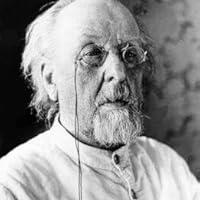
Konstantin Tsiolkovsky
Sobre el Autor
Konstantin Tsiolkovsky was a pioneering Russian rocket scientist and visionary who is often referred to as the father of astronautics. Born in 1857, Tsiolkovsky's early life was marked by personal challenges, including the loss of his hearing at a young age. Despite these obstacles, he pursued his fascination with science and mathematics, eventually laying the groundwork for modern rocketry. His theoretical work on the principles of rocket propulsion and space travel was revolutionary and ahead of its time, influencing generations of scientists and engineers.
Throughout his life, Tsiolkovsky wrote extensively, producing numerous papers and books that detailed his ideas about space exploration and the potential for human life beyond Earth. His most notable contributions include the concept of the rocket equation and the design of space travel vehicles. Tsiolkovsky's visionary thoughts extended beyond mere mechanics; he also contemplated the philosophical implications of space exploration. His legacy continues to inspire current space exploration endeavors and has solidified his place as a key figure in the history of science and technology.